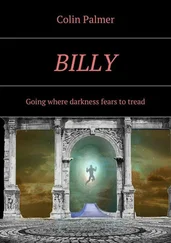E. Forster - Where Angels Fear to Tread
Здесь есть возможность читать онлайн «E. Forster - Where Angels Fear to Tread» весь текст электронной книги совершенно бесплатно (целиком полную версию без сокращений). В некоторых случаях можно слушать аудио, скачать через торрент в формате fb2 и присутствует краткое содержание. Жанр: Классическая проза, на английском языке. Описание произведения, (предисловие) а так же отзывы посетителей доступны на портале библиотеки ЛибКат.
- Название:Where Angels Fear to Tread
- Автор:
- Жанр:
- Год:неизвестен
- ISBN:нет данных
- Рейтинг книги:5 / 5. Голосов: 1
-
Избранное:Добавить в избранное
- Отзывы:
-
Ваша оценка:
- 100
- 1
- 2
- 3
- 4
- 5
Where Angels Fear to Tread: краткое содержание, описание и аннотация
Предлагаем к чтению аннотацию, описание, краткое содержание или предисловие (зависит от того, что написал сам автор книги «Where Angels Fear to Tread»). Если вы не нашли необходимую информацию о книге — напишите в комментариях, мы постараемся отыскать её.
Where Angels Fear to Tread — читать онлайн бесплатно полную книгу (весь текст) целиком
Ниже представлен текст книги, разбитый по страницам. Система сохранения места последней прочитанной страницы, позволяет с удобством читать онлайн бесплатно книгу «Where Angels Fear to Tread», без необходимости каждый раз заново искать на чём Вы остановились. Поставьте закладку, и сможете в любой момент перейти на страницу, на которой закончили чтение.
Интервал:
Закладка:
This etext was prepared by Richard Fane, Haddonfield, NJ
Where Angels Fear to Tread
by E. M. Forster
Chapter 1
They were all at Charing Cross to see Lilia off—Philip, Harriet, Irma, Mrs. Herriton herself. Even Mrs. Theobald, squired by Mr. Kingcroft, had braved the journey from Yorkshire to bid her only daughter good-bye. Miss Abbott was likewise attended by numerous relatives, and the sight of so many people talking at once and saying such different things caused Lilia to break into ungovernable peals of laughter.
“Quite an ovation,” she cried, sprawling out of her first-class carriage. “They'll take us for royalty. Oh, Mr. Kingcroft, get us foot-warmers.”
The good-natured young man hurried away, and Philip, taking his place, flooded her with a final stream of advice and injunctions—where to stop, how to learn Italian, when to use mosquito-nets, what pictures to look at. “Remember,” he concluded, “that it is only by going off the track that you get to know the country. See the little towns—Gubbio, Pienza, Cortona, San Gemignano, Monteriano. And don't, let me beg you, go with that awful tourist idea that Italy's only a museum of antiquities and art. Love and understand the Italians, for the people are more marvellous than the land.”
“How I wish you were coming, Philip,” she said, flattered at the unwonted notice her brother-in-law was giving her.
“I wish I were.” He could have managed it without great difficulty, for his career at the Bar was not so intense as to prevent occasional holidays. But his family disliked his continual visits to the Continent, and he himself often found pleasure in the idea that he was too busy to leave town.
“Good-bye, dear every one. What a whirl!” She caught sight of her little daughter Irma, and felt that a touch of maternal solemnity was required. “Good-bye, darling. Mind you're always good, and do what Granny tells you.”
She referred not to her own mother, but to her mother-in-law, Mrs. Herriton, who hated the title of Granny.
Irma lifted a serious face to be kissed, and said cautiously, “I'll do my best.”
“She is sure to be good,” said Mrs. Herriton, who was standing pensively a little out of the hubbub. But Lilia was already calling to Miss Abbott, a tall, grave, rather nice-looking young lady who was conducting her adieus in a more decorous manner on the platform.
“Caroline, my Caroline! Jump in, or your chaperon will go off without you.”
And Philip, whom the idea of Italy always intoxicated, had started again, telling her of the supreme moments of her coming journey—the Campanile of Airolo, which would burst on her when she emerged from the St. Gothard tunnel, presaging the future; the view of the Ticino and Lago Maggiore as the train climbed the slopes of Monte Cenere; the view of Lugano, the view of Como—Italy gathering thick around her now—the arrival at her first resting-place, when, after long driving through dark and dirty streets, she should at last behold, amid the roar of trams and the glare of arc lamps, the buttresses of the cathedral of Milan.
“Handkerchiefs and collars,” screamed Harriet, “in my inlaid box! I've lent you my inlaid box.”
“Good old Harry!” She kissed every one again, and there was a moment's silence. They all smiled steadily, excepting Philip, who was choking in the fog, and old Mrs. Theobald, who had begun to cry. Miss Abbott got into the carriage. The guard himself shut the door, and told Lilia that she would be all right. Then the train moved, and they all moved with it a couple of steps, and waved their handkerchiefs, and uttered cheerful little cries. At that moment Mr. Kingcroft reappeared, carrying a footwarmer by both ends, as if it was a tea-tray. He was sorry that he was too late, and called out in a quivering voice, “Good-bye, Mrs. Charles. May you enjoy yourself, and may God bless you.”
Lilia smiled and nodded, and then the absurd position of the foot-warmer overcame her, and she began to laugh again.
“Oh, I am so sorry,” she cried back, “but you do look so funny. Oh, you all look so funny waving! Oh, pray!” And laughing helplessly, she was carried out into the fog.
“High spirits to begin so long a journey,” said Mrs. Theobald, dabbing her eyes.
Mr. Kingcroft solemnly moved his head in token of agreement. “I wish,” said he, “that Mrs. Charles had gotten the footwarmer. These London porters won't take heed to a country chap.”
“But you did your best,” said Mrs. Herriton. “And I think it simply noble of you to have brought Mrs. Theobald all the way here on such a day as this.” Then, rather hastily, she shook hands, and left him to take Mrs. Theobald all the way back.
Sawston, her own home, was within easy reach of London, and they were not late for tea. Tea was in the dining-room, with an egg for Irma, to keep up the child's spirits. The house seemed strangely quiet after a fortnight's bustle, and their conversation was spasmodic and subdued. They wondered whether the travellers had got to Folkestone, whether it would be at all rough, and if so what would happen to poor Miss Abbott.
“And, Granny, when will the old ship get to Italy?” asked Irma.
“'Grandmother,' dear; not 'Granny,'” said Mrs. Herriton, giving her a kiss. “And we say 'a boat' or 'a steamer,' not 'a ship.' Ships have sails. And mother won't go all the way by sea. You look at the map of Europe, and you'll see why. Harriet, take her. Go with Aunt Harriet, and she'll show you the map.”
“Righto!” said the little girl, and dragged the reluctant Harriet into the library. Mrs. Herriton and her son were left alone. There was immediately confidence between them.
“Here beginneth the New Life,” said Philip.
“Poor child, how vulgar!” murmured Mrs. Herriton. “It's surprising that she isn't worse. But she has got a look of poor Charles about her.”
“And—alas, alas!—a look of old Mrs. Theobald. What appalling apparition was that! I did think the lady was bedridden as well as imbecile. Why ever did she come?”
“Mr. Kingcroft made her. I am certain of it. He wanted to see Lilia again, and this was the only way.”
“I hope he is satisfied. I did not think my sister-in-law distinguished herself in her farewells.”
Mrs. Herriton shuddered. “I mind nothing, so long as she has gone—and gone with Miss Abbott. It is mortifying to think that a widow of thirty-three requires a girl ten years younger to look after her.”
“I pity Miss Abbott. Fortunately one admirer is chained to England. Mr. Kingcroft cannot leave the crops or the climate or something. I don't think, either, he improved his chances today. He, as well as Lilia, has the knack of being absurd in public.”
Mrs. Herriton replied, “When a man is neither well bred, nor well connected, nor handsome, nor clever, nor rich, even Lilia may discard him in time.”
“No. I believe she would take any one. Right up to the last, when her boxes were packed, she was 'playing' the chinless curate. Both the curates are chinless, but hers had the dampest hands. I came on them in the Park. They were speaking of the Pentateuch.”
“My dear boy! If possible, she has got worse and worse. It was your idea of Italian travel that saved us!”
Philip brightened at the little compliment. “The odd part is that she was quite eager—always asking me for information; and of course I was very glad to give it. I admit she is a Philistine, appallingly ignorant, and her taste in art is false. Still, to have any taste at all is something. And I do believe that Italy really purifies and ennobles all who visit her. She is the school as well as the playground of the world. It is really to Lilia's credit that she wants to go there.”
Читать дальшеИнтервал:
Закладка:
Похожие книги на «Where Angels Fear to Tread»
Представляем Вашему вниманию похожие книги на «Where Angels Fear to Tread» списком для выбора. Мы отобрали схожую по названию и смыслу литературу в надежде предоставить читателям больше вариантов отыскать новые, интересные, ещё непрочитанные произведения.
Обсуждение, отзывы о книге «Where Angels Fear to Tread» и просто собственные мнения читателей. Оставьте ваши комментарии, напишите, что Вы думаете о произведении, его смысле или главных героях. Укажите что конкретно понравилось, а что нет, и почему Вы так считаете.











